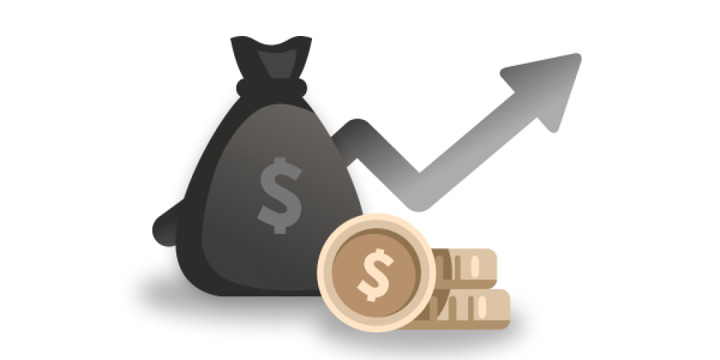How does the exchange rate work and how can you get the best one?

Everyone who sends money abroad faces a problem: choosing the right exchange rate. Even people who transfer regularly have difficulty understanding exactly how exchange rates work.
To facilitate your transfers, we have compiled valuable information on this subject: What is the definition of the exchange rate? What is it used for ? How does the exchange rate work? Where to get the best exchange rate? How do you know if the exchange rate is good? Why does the exchange rate vary? How to calculate the exchange rate of a currency? We answer all these questions and also show you the WorldRemit features to help you get the best possible rate.
Exchange rate: definitions
The exchange rate is the value of one currency compared to another. We only encounter exchange rates when we transfer abroad or when we travel.
What we don't know is that exchange rates affect many aspects of our daily lives, from the price of our groceries and fuel to existing jobs or borrowing rates! And for good reason, the majority of goods that we consume do not necessarily come from countries with the same currency.
One of the most striking examples concerns fuel. Indeed, if the price of a barrel of oil is $100 and the EUR/USD exchange rate is €1 = $1.20. In this case, the price of the barrel will cost European countries €83.33. On the other hand, if the EUR/USD exchange rate increases to €1 = $0.90, then the price of a barrel will cost €111.11.
These variations in the exchange rate can therefore have significant consequences on a daily basis.
What is an interbank rate?
The interbank market is used by banks to exchange currencies with each other. This rate is generally better than the rate granted to individuals, because foreign exchange services add a margin in order to generate profits from transactions.
What is forex?
FOREX (foreign exchange market or FX) is the global currency market, used by individuals as well as businesses and banks. If you make a transaction that requires currency conversion, FOREX determines the value you will get for your amount.
For example, if you buy a product in Euros but pay in US dollars, you have made a FOREX transaction.
A significant portion of currency trading occurs for practical reasons (purchasing goods or traveling abroad). However, the majority of currency transactions are intended to generate profits.
Why is the exchange rate important?
At the national level, exchange rates are of central importance for foreign trade. And for good reason, a high exchange rate favors imports, since States can pay less for foreign products. On the other hand, countries with a weak exchange rate can more easily export their goods at competitive rates. This is particularly the case of the Chinese regime which is regularly accused of undervaluing its currency in order to sell its goods at a lower cost.
In the event of a depreciation of the local currency, imports could cost more. And if the state depends mainly on foreign trade for the delivery of its goods, the risk of inflation is high.
And this is then reflected at the individual level. Both in terms of consumption (in the event of inflation, the purchasing power of citizens decreases considerably), but also for international transfers. Indeed, if you make transfers with a high rate, the recipient will get more money during the conversion. Conversely, if the rate is low, you will pay more for the same amount.
Types of exchange rates
You have certainly heard of the fixed exchange rate and the floating exchange rate. Let's see the definition of each and the difference between fixed exchange rate and floating exchange rate.
Fixed exchange rate: definition
A fixed exchange rate is a currency that is not influenced by supply or demand. It is the government of the country concerned which controls the rate and regulates its value. Countries applying a monetary policy with a fixed exchange rate are, for example, Hong Kong, Denmark and Saudi Arabia. These generally set the exchange rate against an internationally popular currency (US dollar or euro).
In this context, the government holds part of the currencies concerned. This allows them to sell or buy currencies to keep the exchange rate at the same level.
Floating exchange rate: definition
Most countries use the floating exchange rate system (United States, Canada, Eurozone, United Kingdom, etc.). When a country uses a floating exchange rate, it is only influenced by market forces such as supply and demand and is not regulated by the government.
So which is the better option between fixed or floating exchange rate? In our globalized economy, floating exchange rates appear to be the best option. That said, for developing countries, fixed exchange rates help ensure monetary stability and promote growth.
What is a good exchange rate?
The question here is whether a high or low exchange rate is better? The answer depends on the country you are transferring from. If your sending currency is stronger than the currency sent, it is in your interest to benefit from a high rate.
For example, if 1 euro is worth 10.63 Moroccan dirhams one day, but 11.06 the next day, you will get more dirhams when converting with a high rate. If you send dirhams for conversion to euros, you will pay more for the same amount, which will not be in your favor.
And on a global scale, a good exchange rate is one that maintains the balance between external and internal operations. At the external level, these are transactions carried out with third countries (imports + exports). However, the latter have a direct influence at the internal level (in particular on the purchasing power of citizens or the competitiveness of businesses). All of this then contributes to the monetary stability of a country.